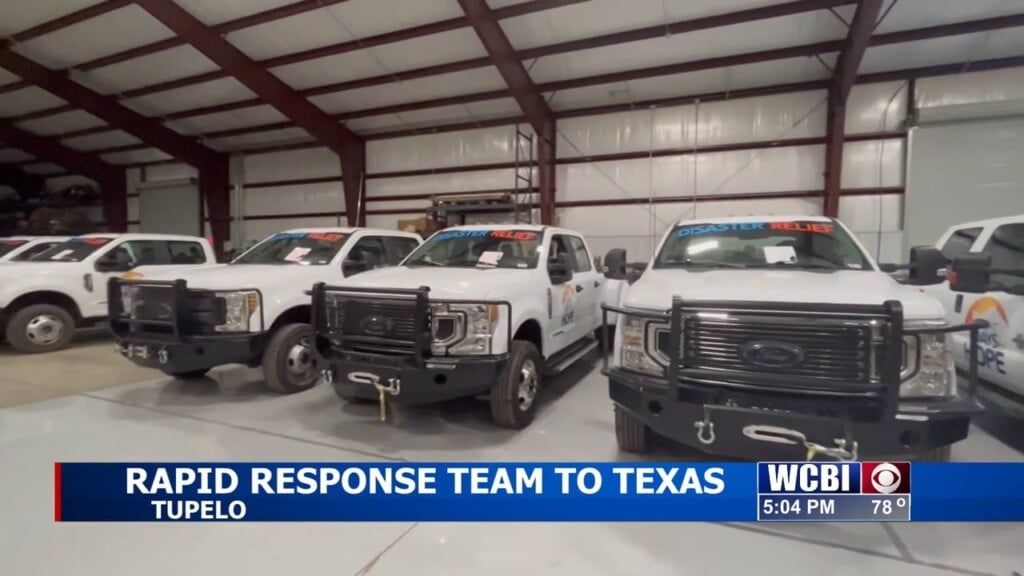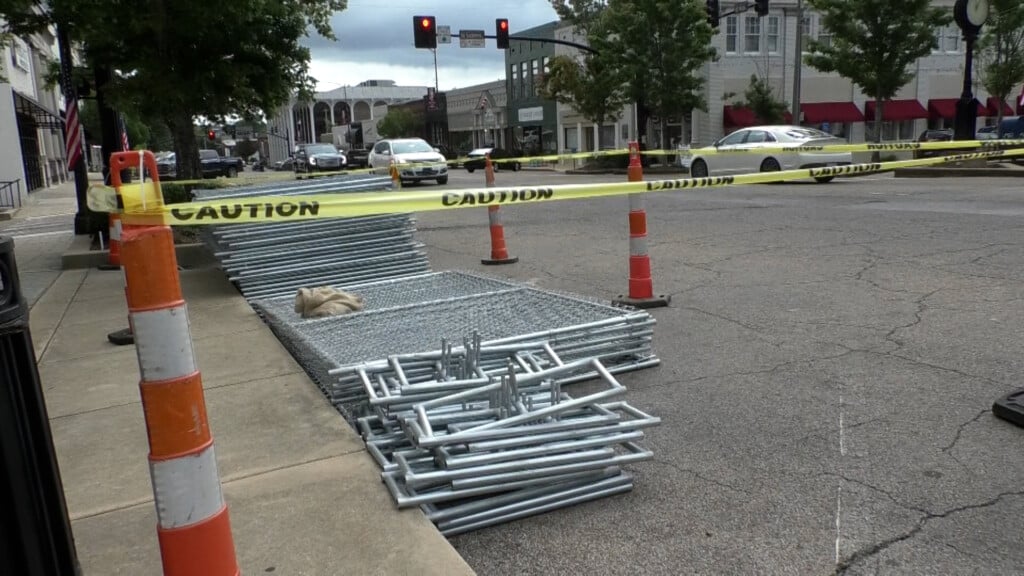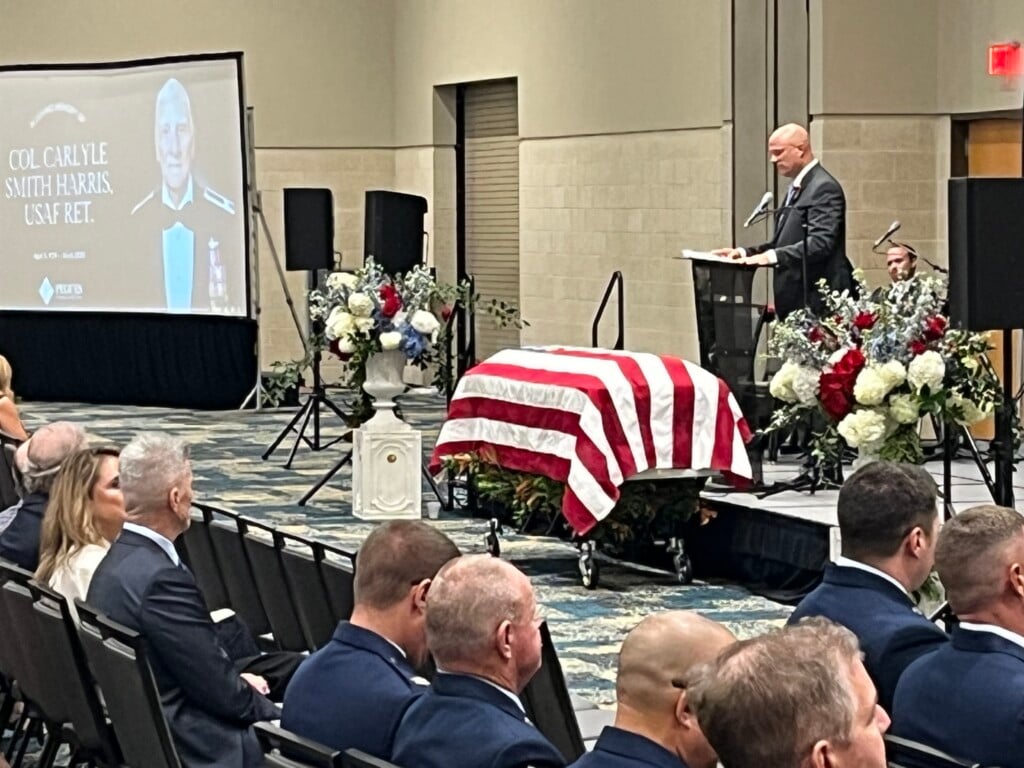2020 Daily Trail Markers: Partial Iowa caucus results released
Twenty hours after the Iowa caucuses began, the Iowa Democratic Party released partial data from its caucuses on Tuesday afternoon showing Mayor Pete Buttigieg leading in statewide delegates with 62% of precincts reporting. The party reported some results from all of Iowa’s 99 counties.
CBS News campaign reporters Musadiq Bidar and Adam Brewster say the returns showed Buttigieg with 26.9% followed by Bernie Sanders (25.1%), Elizabeth Warren (18.3%), Joe Biden (15.6%) and Amy Klobuchar (12.6%). The return process was thrown into turmoil on Monday night when reporting problems with an app forced many precinct captains to report their results by phone. Several county chairs around the state said that their precinct leaders experienced massive delays waiting to report their results. Many candidates left the state early Monday morning without knowing how they performed.
Before the results were released, Iowa Democratic Party chair Troy Price apologized for the massive reporting problems, calling it “unacceptable.” He faced intense questions from reporters about whether the party’s results could be trusted after they said they found “inconsistencies” in the returns last night.
“The one thing I want you to know, we know this data is accurate,” Price said. “The thing to remember here folks is that we have a paper trail, we’ve always said all along that throughout this process that we have backups to this system.” Price wouldn’t set a timeline for how long it will take to get to reporting 100% of the results.
Representatives from the state party are meeting with every county chair across the state to collect materials from Monday night. That includes voter rolls, caucus math worksheets, presidential preference cards, and new Democratic voter registration forms.
“We are going to take the time we need to verify these results,” Price said.
Earlier in the day, Price released a statement saying “a coding issue” caused only partial results to be reported on the app. Price said there had been no discrepancies with the coding during third-party testing of the app.
“We are going to have a thorough and independent review of exactly what happened last night. Right now we are in the process of making sure we get these results out,” Price said. Some county chairs, however, did report issues with other testing in the days leading up to the caucuses. One county chair told CBS News that she informed state party officials on Monday that the app wasn’t working and was told to rely on the phone lines for reporting the results.
During an intense phone call earlier on Tuesday with Price and campaign staff, Dana Remus, general counsel for former Vice President Joe Biden, questioned whether the party had resolved reporting issues around the state and should be releasing results. She cited the reporting delays for precinct leaders and questions at some locations about whether everything was properly reported.
“You need to allow enough transparency that other people can feel good about it, as well. And we’re just not there right now,” Remus said. “I mean the stories and the problems are just multiplying and so presumably, you’re going to have some way of addressing that and explaining to us as you release these partial results why you’re comfortable.”
Price said state party officials are in the process of collecting preference cards and reporting sheets from all the precincts and they would be releasing results as they “would have done on caucus night.”
In a statement after the results were released, Sanders senior adviser Jeff Weaver applauded the decision to release the results early.
“We want to thank the people of Iowa,” Weaver said. “We are gratified that in the partial data released so far, it’s clear that in the first and second round more people voted for Bernie than any other candidate in the field.” The party will continue combing through raw data from the remaining 38% of precincts across Iowa.
FROM THE CANDIDATES
JOE BIDEN
Just one day after the inconclusive Iowa Caucuses, former South Carolina Governor Jim Hodges has announced that he’s endorsing former Vice President Joe Biden. Hodges — the last Democrat to have served as governor in the state since his tenure ended in 2003 — joins former South Carolina governor and Education Secretary Dick Riley and a number of supporters who will be campaigning on Biden’s behalf in the run-up to the state’s February 29th primary.
In a conversation with CBS News campaign reporter LaCrai Mitchell on Tuesday, Hodges said that he’d always intended to endorse after the Iowa contest but added that the results there didn’t mean much to him because the state isn’t “particularly reflective of the demographics of the Democratic Party.” When asked whether the chaos surrounding the results of the Iowa contest could help Biden if he has a disappointing finish there, Hodges insisted that the results of Iowa are tainted.
“The big loser last night was not Joe Biden — the big loser was Iowa Democrats because this is going to raise questions about whether you want to continue to have a caucus system rather than a primary,” said Hodges. “It’s hard to see anyone coming out of Iowa with what happened there, having any momentum. I mean, the results are going to be tainted… I’m not so sure that a third or fourth or fifth place finish, given what happened in Iowa, makes much of a difference.”
PETE BUTTIGIEG
After tje caucus chaos, Buttigieg’s South Carolina team is asking supporters to help them mobilize “build on [Buttigieg’s] victorious night” in Iowa. Hours before the Iowa Democratic Party’s planned release of caucus results, Buttigieg’s South Carolina team sent an email Tuesday sharing the campaign’s precinct-level internal data. The team claim its records show that the former South Bend mayor’s performance showed he can build the coalition needed to beat President Trump.
“Our success in Iowa on caucus night is visible via exit and internal polling,” said Buttigieg’s South Carolina Communications Director Lauren Brown in a statement to CBS News campaign reporter LaCrai Mitchell. “We took a mayor that was 37 years old — and many said had no business running for president — with a message for America during a cynical time, and we shocked the world.” Other Democratic presidential candidates have criticized anyone declaring victory before the official results come from the Iowa Democratic Party.
MICHAEL BLOOMBERG
While the other candidates were duking it out in Iowa last night, former New York Mayor Mike Bloomberg campaigned in California, a Super Tuesday state with the massive prize of 415 delegates. He and his campaign expressed a gleeful delight in muddled indecision from last night and Tuesday announced plans to double their already unprecedented spending on advertising and increasing their nationwide staff, reports CBS News campaign reporter Tim Perry.
“After more than a year of this primary, the field is as unsettled as ever. No one has made the sale or even come close to it,” Bloomberg campaign spokeswoman Galia Slayen said in a statement to CBS News. “Meanwhile, Mike is taking the fight to Trump every day, doubling down on the national campaign strategy we’ve been running from the beginning.”
A campaign aide told CBS News that the media blitz would include an increase in total gross ratings points from 1,200 to 2,400. The Bloomberg campaign is reported to have spent over $275 million in digital and television ads since launching. In the Bloomberg’s fourth quarter FEC filing, he disclosed $132 million on TV ads alone, despite entering the race in late November. The campaign also announced it’s bumping up staffing to 2,100 people. This figure includes 1,700 people in 40 states.
While other candidates leave Iowa and head to New Hampshire, Bloomberg is campaigning across the country, making stops in Super Tuesday states and key battleground states essential to Democrats’ efforts to win the White House.
Today, while campaigning in Detroit, Michigan Bloomberg poked fun last night’s inconclusive results.
“Yesterday, I hear something happened in Iowa. Or didn’t happen I don’t know which,” Bloomberg joked to a crowd of 450 people. “I was on a plane coming up here and I was sleeping and I woke up, and I said, ‘What happened? And the guy said, ‘Nothing.'”
For the rest of the week Bloomberg will make additional stops in another Super-Tuesday state, Virginia, where Bloomberg invested heavily in during the 2018 midterm elections, and Pennsylvania, another key Battleground state.
TECHNICAL DIFFICULTIES
APP-OPLECTIC
After issues with a mobile app led to delayed Iowa caucus results and a wave of criticism, the Nevada State Democratic Party announced Tuesday it is scrapping its planned use of the same app.
“NV Dems can confidently say that what happened in the Iowa caucus last night will not happen in Nevada on February 22nd,” state party chair William McCurdy II said in a statement. “We will not be employing the same app or vendor used in the Iowa caucus. We had already developed a series of backups and redundant reporting systems, and are currently evaluating the best path forward.”
The Iowa Democratic Party and Nevada State Democratic Party had contracted with Shadow Inc., a progressive tech startup headed by Hillary Clinton’s top developer in 2016, to build a mobile app to help the parties report results and support volunteers on caucus night, two Democrats familiar with the decision told CBS News campaign reporter Alex Tin.
The firm received $58,000 from Nevada’s state party last summer for “technology services,” and more than $62,000 from Iowa’s party for “website development.”
Three Democrats in Nevada confirmed Tuesday that the app had played a central role in caucus chair training in the state ahead of Caucus Day, with volunteers given multiple opportunities to test out the app in person. Both state parties had been reluctant to identify the vendor or details of its vetting process, citing security concerns. As in Iowa, the software will assist Nevada Democrats in their upcoming contest to report unofficial winners and losers on the night of the caucus, backed up by paper records for the official certification of the results.
Several campaigns have also purchased services from Shadow, mostly for “non-federal digital communications.” The company, which touts itself as building a “long-term, side-by-side ‘Shadow’ of tech infrastructure to the Democratic Party and the progressive community,” advertises text message and data services separate from the apps developed for the state parties. The Iowa Democratic Party blamed a “coding issue” for “reporting out only partial data” in a statement Tuesday, adding that the error “did not impact the ability of precinct chairs to report data accurately.”
Nevada’s Democratic party has invested heavily in designing an extensive training program for the state’s caucuses, which kick off early voting in two weeks, adding an additional layer of complexity to tabulation on the day of the caucuses. But despite the party’s preparations, two aides to Democratic campaigns in Nevada have told CBS News they fear the February 22 contest could be a repeat of Iowa’s frustrating delays.
CONGRESSIONAL COVERAGE
IN THE HOUSE
Polls are already open for Maryland’s special primary election for the 7th Congressional district, previously held by the late Elijah Cummings. There are 24 Democratic candidates and eight Republicans on the ballot for the approximately 510,000 registered voters in this Baltimore and Howard County district. Maya Rockeymoore Cummings, Elijah’s widow and considered one of the frontrunners in a crowded field, told Baltimore reporters Tuesday morning that she feels “at peace.”
Cummings added, “I feel like Elijah’s standing right here next to me. So you know this is about continuing his legacy and building upon it. And I knew him so well, better than anybody else in this race, I knew what his hopes and dreams for this district and this city are and were, and I’m prepared to carry that forward.” In addition to Rockeymoore Cummings, some of other Democratic candidates include former Maryland 7th District Representative Kweisi Mfume, longtime Elijah Cummings aide Harry Spikes, and state legislators Jill Cater and Talmadge Branch. The district has been held by a Democrat since 1953.
St. Mary’s College of Maryland political science associate professor Todd Eberly told CBS News political unit broadcast associate Aaron Navarro that the nature of the special election primaries points to a low turnout, which could help different sets of candidates in certain ways.
“There are at least three candidates in there who have a very recent history of receiving votes in that district, whether it be Carter, [Jay] Jalisi or Branch, they’ve all as recently as 2018 had folks go into the polls casting votes for them, familiar with their names, familiar with the idea of voting for them, and that building constituency could certainly help,” he said.
“Kweisi Mfume used to represent the district but it’s been awhile, and then you’ve got Maya Rockeymoore Cummings who’s got the name recognition because she shares of course the last name, so … the case can be made for how any one of those candidates could benefit from lower turnout,” he said.
The winner of the special primary on Tuesday will go on to the special general election on April 28, the same day as the district’s regular primary. All of Tuesdays candidates can also continue to run for the regular primary in April and try to defeat tonight’s winner and become their party’s nominee in November’s regular general election.
GOVERNOR’S MANSION
MICHIGAN
Michigan Governor Gretchen Whitmer is slated to give the Democratic response to tonight’s State of the Union address, and she said Tuesday morning she will not bring up the Iowa caucuses.
“I’m going to stay focused on the issues that matter to Michiganders and I think the American people in every state,” she said on CNN this morning. “But it is a wild week, that’s to be sure, and anticipating what the president may or may not say is a challenge, but I’m going to stay focused to the issues that I ran on.”
Whitmer was elected in 2018 by about ten points, running on her “Fix the Damn Roads” infrastructure platform. “Iowa is one state. One down, 49 to go,” she added. In addition to Whitmer, Democrat Congresswoman Veronica Escobar of Texas will deliver the Spanish rebuttal.
In a sort of counterprogramming to the counterprogramming, CBS News political unit broadcast associate Aaron Navarro says the Republican Governor’s Association, RGA, released a digital ad targeting Whitmer, who is not up for reelection this year, and her stalled infrastructure ambitions and budget in a GOP-controlled legislature. The spot, which will air on Facebook and Instagram, features a clip of Mr. Trump from a January rally in Michigan criticizing Whitmer. “She’s not fixing the potholes,” he says in the ad.
There are 11 gubernatorial races in 2020: North Carolina, Delaware, Indiana, Missouri, Montana, New Hampshire, North Dakota, Utah, Vermont, Washington and West Virginia. North Carolina has the closest gubernatorial primary date: March 3.
In 2019, the Democratic Governors’ Association raised $43.5 million, a record for a pre-Presidential election year but still less than the $53.1 million the RGA raised. Democrats went two of three in 2019, with wins in Kentucky and Louisiana and a loss in Mississippi. Both poured a similar amount of money in Louisiana’s gubernatorial race, with about $9 million a piece going to their respective campaigns.
While the RGA spent about $3.5 million more than the DGA in Kentucky, Democrat Andy Beshear toppled incumbent GOP Governor Matt Bevin. In Mississippi, a Republican win for Lieutenant Governor Tate Reeves, the RGA spent about $500,000 more than its Democratic counterpart.





Leave a Reply